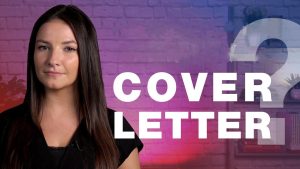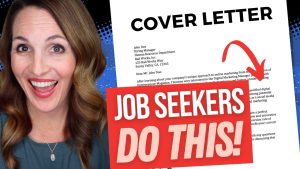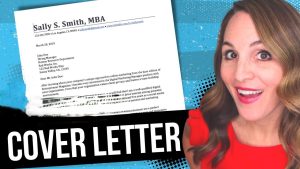Introduction In today’s competitive job market, a well-written cover letter can be the key to standing out. While resumes focus on your qualifications, a cover letter shows your personality, passion, and why you’re the right fit for the role. It’s your chance to Write a Cover Letter to introduce yourself in a way that captures
Introduction
In today’s competitive job market, a well-written cover letter can be the key to standing out. While resumes focus on your qualifications, a cover letter shows your personality, passion, and why you’re the right fit for the role. It’s your chance to Write a Cover Letter to introduce yourself in a way that captures the attention of hiring managers and sets you apart from other candidates.
This guide will help you create a cover letter that makes an impact, covering everything from formatting to personalization, and common mistakes to avoid.
What is a Cover Letter and Why is it Important?

Image by: Yandex.com
What is a Cover Letter?
A cover letter is a one-page document that accompanies your resume. It introduces you to the hiring manager, explains why you’re applying for the job, and highlights your skills and experience. It connects the dots between your resume and the job description.
Why You Need a Strong Cover Letter:
- Personalizes Your Application: It gives a human touch beyond your resume.
- Shows Off Your Skills: It highlights achievements that make you unique.
- Proves Your Interest: It demonstrates your enthusiasm for the role.
- Grabs the Hiring Manager’s Attention: A strong cover letter can make hiring managers want to read your resume.
A well-crafted cover letter is essential for getting noticed.
Simple Tips to Write a Cover Letter

Image by: Yandex.com
1. How to Structure a Standout Cover Letter
A strong cover letter has a clear and easy-to-follow structure.
Basic Cover Letter Format
- Header: Include your contact information and the date.
- Salutation: Address the hiring manager by name, if possible.
- Opening Paragraph: Capture attention with a compelling intro.
- Middle Paragraphs: Highlight your key qualifications and experiences.
- Closing Paragraph: Wrap up by expressing your interest and calling for action.
- Signature: End with a polite closing statement.
Following this format keeps your letter organized and professional.
2. How to Personalize Your Cover Letter
Generic cover letters don’t make an impact. Personalizing your cover letter for each job and company increases your chances of standing out.
Personalization Tips
- Address the Hiring Manager by Name: Avoid generic greetings like “To Whom It May Concern.”
- Mention the Company and Job Title: Show that the letter is specific to the role you’re applying for.
- Align with the Job Description: Emphasize how your skills meet the employer’s needs.
- Understand the Company Culture: Show that you’ve done research and understand the company’s values.
Personalizing your letter makes it more engaging and relevant.
3. Key Elements of a Winning Cover Letter
A successful cover letter should be concise, relevant, and tailored to the job.
What to Include
- Engaging Opening Statement: Start with a hook that grabs attention.
- Relevant Skills and Achievements: Focus on accomplishments that match the job’s requirements.
- Quantifiable Results: Use numbers to showcase your impact in previous roles.
- Value Proposition: Explain how your skills can benefit the company.
- Call to Action: End with enthusiasm, asking for an interview or follow-up conversation.
Each section should connect to the employer’s needs and show why you’re the best fit for the job.
4. Common Cover Letter Mistakes to Avoid
Even great candidates can make mistakes that hurt their chances. Avoiding these common errors will help you present a polished cover letter.
Biggest Mistakes
- Being Too Generic: Don’t use the same letter for every job. Tailor it to the specific role.
- Repeating Your Resume: Use the cover letter to expand on key achievements, not just restate your resume.
- Making It Too Long: Keep it short and to the point aim for one page.
- Not Proofreading: Typos and mistakes can harm your credibility.
- Skipping a Call to Action: Always end with a request for an interview or follow-up.
Avoiding these mistakes helps create a stronger, more professional cover letter.
Why Cover Letters Are Still Important

Image by: Yandex.com
Even with the rise of digital job applications, cover letters are still very important. They give job seekers a chance to explain their experience in a more personal way. Resumes list facts, but cover letters let you tell a story about why you’re the perfect fit for the job. They help employers see that you’re not just another applicant, but someone who really cares about the role.
How to Write an Effective Cover Letter
Writing an effective cover letter starts with understanding the job you’re applying for. Carefully read the job description and focus on the skills and qualities the employer is looking for. In your letter, match your experience with those needs. Use clear language and keep it short and to the point. Your goal is to show the employer that you have what they need and are excited to contribute to their team.
Cover Letter Tips for Recent Graduates
If you’re a recent graduate, writing a cover letter can feel a bit tricky because you may not have much work experience. But don’t worry! Focus on your education, internships, or any volunteer work you’ve done. Highlight skills you’ve gained, such as teamwork, problem-solving, or leadership. A well-written cover letter can help employers see your potential, even if your experience is limited.
Cover Letters for Career Changers

Image by: Yandex.com
If you’re changing careers, your cover letter is your chance to explain why you’re making the change and how your past experience is still valuable. Focus on the transferable skills you’ve gained in your previous job and show how they apply to the new role. A great cover letter will reassure employers that you’re ready for the change and have the skills to succeed in your new career.
How to Show Your Passion for the Job
In your cover letter, it’s important to show that you’re excited about the job. Employers want to know that you’re truly interested in the position. You can do this by explaining why you’re passionate about the work and how your skills match the job. If you’re excited about the company’s mission or the challenges the job offers, let the employer know. Showing passion helps employers feel confident that you’ll be committed if you’re hired.
Keeping Your Cover Letter Professional

Image by: Yandex.com
While it’s important to show your personality, your cover letter should always stay professional. Avoid using slang, emojis, or overly casual language. Keep the tone respectful and polite. A professional cover letter helps show that you understand the expectations of the workplace and are serious about the role. Always remember that your cover letter is a representation of your work ethic and communication skills.
Why Customizing Your Cover Letter Matters
One of the best ways to stand out in a job application is by customizing your cover letter for each job. Don’t use a one-size-fits-all approach. Tailor your letter to the specific job by focusing on the skills and experience that matter most for that role. Customizing your letter shows that you’re not sending a generic application and that you’re serious about the opportunity.
Being Concise in Your Writing

Image by: Yandex.com
While it’s important to share your skills and experience, it’s also important to keep your cover letter concise. Hiring managers often have limited time to review applications, so make sure your letter is clear and to the point. Focus on your most relevant skills and experience, and avoid going into too much detail about things that aren’t directly related to the job. Keeping your letter brief will help it stand out in a busy inbox.
Challenges in Writing a Cover Letter
Writing a cover letter can be difficult for many people. One challenge is making it stand out among many others. It’s also hard to find the right balance between being professional and showing personality. Additionally, tailoring each cover letter for every job can take time and effort. Many people also struggle with what to include and what to leave out, trying not to be too vague or too detailed.
The Future of Cover Letters

Image by: Yandex.com
As job applications continue to evolve, cover letters will likely remain important. In the future, cover letters may become even more personalized with new technologies and tools to help job seekers create tailored content more easily. As employers continue to look for candidates who are not only qualified but also a good cultural fit, cover letters will continue to play a role in showing that connection. The future of cover letters will likely involve new trends in digital applications, where candidates can showcase their skills in innovative ways.
Comparative Table: Cover Letter Do’s and Don’ts
| Do’s | Don’ts |
|---|---|
| Personalize each cover letter | Use a generic template for all jobs |
| Address the hiring manager by name | Use “To Whom It May Concern” |
| Highlight achievements with data | Repeat information from your resume |
| Keep it clear and concise | Make it overly long and wordy |
| End with a strong call to action | Forget to request an interview |
Analysis Table: Key Elements of a Great Cover Letter
| Element | Best Practice | Why It Works |
|---|---|---|
| Personalization | Address the hiring manager by name and tailor the letter to the job | Shows effort, interest, and knowledge of the company |
| Introduction | Start with excitement about the role and company | Grabs attention and sets a positive tone |
| Skills & Experience | Highlight relevant achievements and qualifications | Shows you understand the role and have the skills needed |
| Closing | Politely ask for an interview and thank them for their time | Leaves a strong, positive impression |
Conclusion
Creating an impressive cover letter takes time and effort, but it’s well worth it. By following the tips and best practices outlined in this article, you’ll be able to write a cover letter that not only grabs attention but also convinces employers that you’re the right fit for the role. Avoid common mistakes, tailor each cover letter to the specific job, and keep your writing clear, concise, and professional. With these strategies, you’ll increase your chances of landing an interview and moving one step closer to your next career opportunity.
















